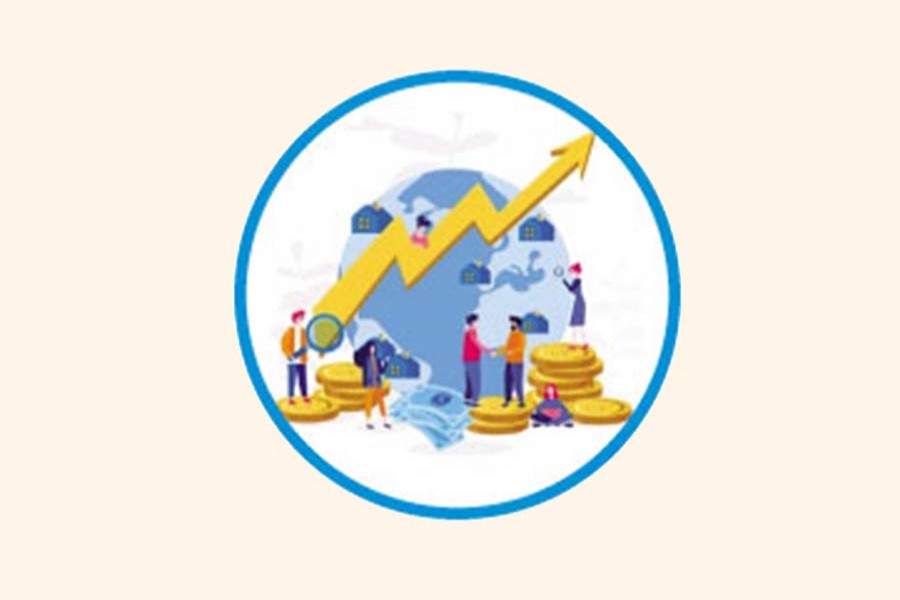It is not particularly gratifying that the governor of the Bangladesh Bank doesn't enjoy the same level of freedom as does the Federal Reserve Chairman or Governor, Bank of England. Janet Yellen and her fellow-countryman at the helm in London have unfettered powers to decide on interest rates and market intervention. During the pandemic both had played a muted, laid-back role as their governments looked for a way out of the economic morass. The Bangladesh Bank's governor can't raise or lower rates simply because the business minds behind banks and such find ways of neutralising undesirable impacts.
A few months ago, the Bank pitched in to mop up excess greenback liquidity from the market. Now, it is having to plough back Forex to try and keep the market and prices stable. Add to that an inexplicable shortage of local currency liquidity and it's a mess. Banks can try and make sense of it but it all spanks in case of bad forecasting and planning. Consumer borrowing is up as is cash crunch against Letters of Credit for imports. Disillusioned depositors aren't amused by low interest rates. Banks, too are finding cost of funds unattractive. It goes from bad to worse in that no one is really paying back stimulus loans. That's what the general feeling had been at the time such stimuli were announced.
Where the money has gone, sans that forked out to ensure salary payments is one of those rather SL (standard level) questions that don't have answers to them. The Prime Minister rarely loses her cool. Even she sounded peeved off when demands for subsidies for diesel and kerosene were demanded recently. She was spot on. Subsidies can't be the answer for all shortfalls. There is a certain increase in prices that consumers will have to bear. It's the 'bear' bit, how much can the consumer absorb that is critical to comprehend. Electricity and water costs have escalated manifold in the last two years. The spill-off impact has kicked in. Prices of essentials, manufactured goods all impacted by utility cost-hikes have bitten hard. None of this explains why there should be a liquidity crisis. Money is out there in some form or shape and as per the cyclical theory, should be in the market.
The monetary policy of Bangladesh Bank has been knocked off course with no real solutions in sight. The Prime Minister has taken another dig at tax-evasion saying the country doesn't have the resources to fund further subsidies unless more people pay their taxes. Income tax is woefully short with only 30 million registered, 23 million of which submitted returns. Businesses have so many loopholes to hide behind, that restaurant owners are now asking for street food vendors to be brought under VAT. This could lead to the shop owners' association demanding street vendors to be VAT-ed too. With the informal economy growing unbridled, the precious commodity-cash is becoming harder to find in official channels. This will shrink further unless there is proper intervention by the Bangladesh Bank. Taka twenty-thousand crore (200 billion) black money was allowed to be whitened through payment of 10% tax and forced investment in the share-market or the real estate sector. Had a percentage been earmarked for time-bound deposit it might have helped. Cash is easily available on the streets and in villages. Money has allegedly been spent in the ongoing Union Parishad elections, where transactions are purely cash. The unstructured kitchen markets don't support cashless transactions so the puzzle remains as to why there is a liquidity crunch. The health sector, that bore the brunt of transactions during the pandemic had the general public cough up billions in hard cash from all sections of the economy. Cash went in. Where did it all go?
After significant macro interventions and plans, one hopes and believes the relevant quarters in government have weighed the pros and cons in formulating some sort of micro-economic policies sector-wise and contributing to a whole. Reality tells us remittances are on a declining trend. Consumer expenditure is up in one privileged section of society but down as a whole. Loans have to be repaid with interest. So, spending that on unproductive subsidy is suicidal. That may be difficult for the fixed-income group but a fact that won't go away anytime soon.


